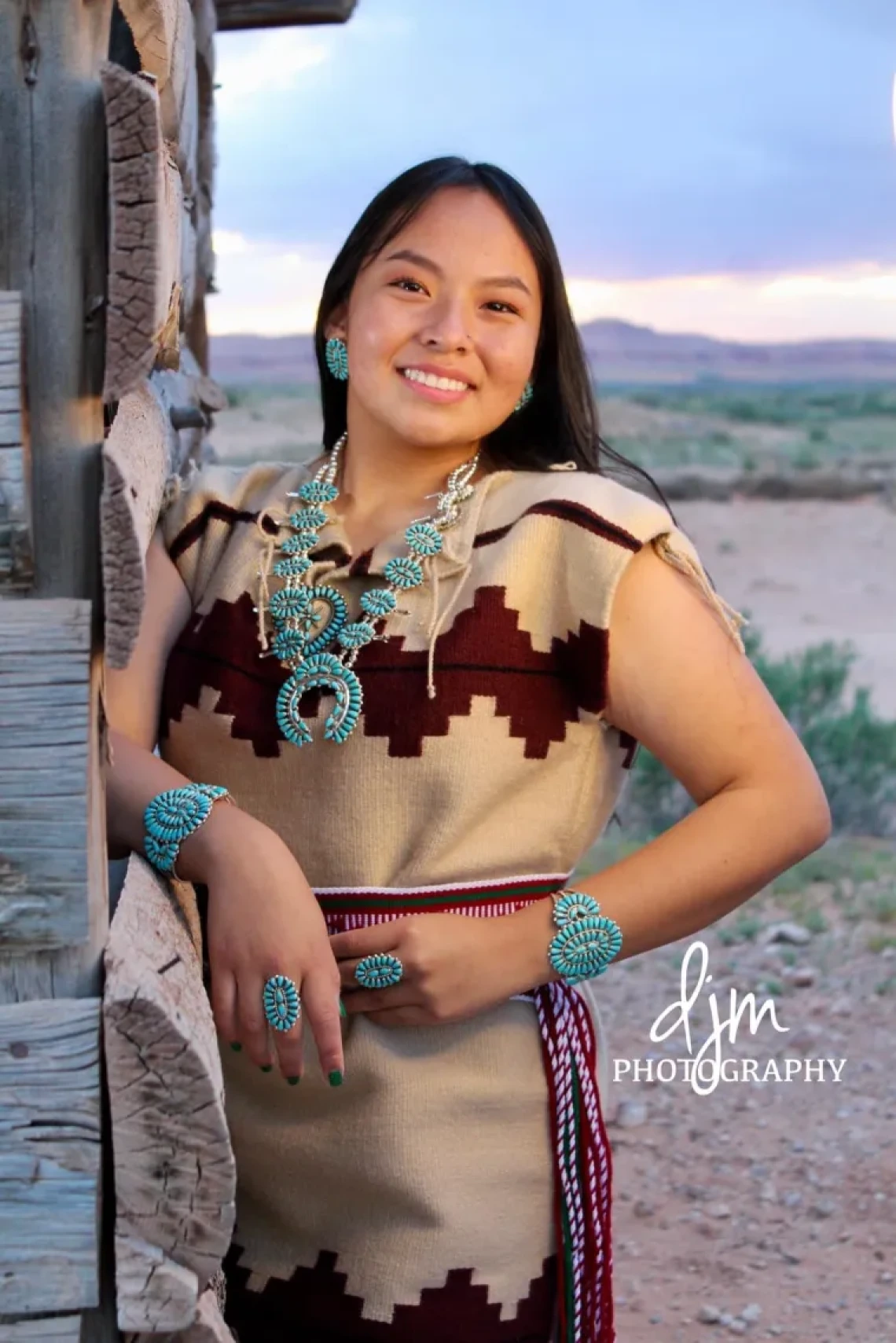Staff Spotlight: Alanna Begay

For this month’s edition of the Sonoran Center Staff Spotlight, we sat down with project aide and student worker Alanna Begay. We discussed the U of A’s unique accommodations, why she chose to work with the Sonoran Center, Native American Heritage Month, and more!
Please introduce yourself and talk about what you do at the Sonoran Center
My name is Alanna Begay. I am a second year at the U of A. I’m from the Navajo Nation. At the Sonoran Center I am a project aide for Native Initiatives with Agnes [Attakai]. I help out with projects and research as needed.
Can you go into more detail about some of the projects you’re working on?
Some of my past projects were creating factsheets for different disabilities for the Tohono O’odham community. I created fact sheets for hearing impairments, and now I’m working on [one for] vision. I’m also working on the [Circle of Indigenous Empowerment] newsletter summarizing everything in October.
How long have you been working with the Center?
I started over the summer in July.
How are you liking it so far?
I really like it! It feels good to be a part of this, especially representing Natives specifically. Being Native myself, I never knew anything about what I’m researching [now]. For me to not know that, it’s crazy how much others don’t know about it either.
Is that what got you interested in working with the Sonoran Center? Or was it something else?
I wanted to work somewhere that makes a difference, and I feel like working here really does that. I’ll go home and tell my family, because they’re really interested in what I do too, they’ll say things like, “I never knew that. Why is this not advertised?” I also have family members who have the kinds of disabilities that I’m researching, and they don’t know any of these resources either. For me to be the person to inform them really helps them a lot. It spreads around my hometown too, that the U of A has these kinds of accommodations. I do feel like I’m creating a difference.
Can you tell us about some of these resources you’ve mentioned?
There’s mental health support, academic help – help is out there. I want them to know that there is a community for them. They don’t have to feel so isolated or singled out.
There’s a lot of resources people don’t know about. Looking over the course of your work, what is something you’ve learned that sticks out to you?
I’ve learned that other colleges may not have the accommodations that U of A provides. That can affect graduation rates. Learning how helpful these accommodations are for the completion of college really stuck with me.
Native American Heritage month is this month. What does Native American Heritage Month mean to you?
It’s an honor, because our great-great ancestors didn’t get to be in college and experience what me and my community are experiencing. They never got access to education. It’s a privilege because on the reservation, there’s a lot of generational trauma that comes with the massacre of all these tribes – some of the elders will say that college is another form of assimilation and genocide: trying to get you off the home reservation, trying to brainwash you of your culture and traditional beliefs. But it’s such a different time now, and there’s not a lot of opportunities for Native Americans. So, I feel like it’s a privilege to stay in college and keep my education going.
What are some things that U of A can do to better connect with Native Communities?
Reaching out. In terms of what the Native American Student Center does now – they do a lot of outreach and provide a lot of help mentally and academically. They have tutoring and social events that really helped me during my first year. Keep advertising that – it makes a difference! They didn’t advertise the indigenous peoples’ day event that happened on campus, for example, so a lot of people didn’t know about that. I think that could be improved.
What are some of your hopes or goals for your time at the Sonoran Center?
Like I said, I really hope to make a difference – not just in my community in my small town, but the whole Navajo Reservation. That’s one of my biggest things – to help marginalized groups. Because I know my tribe needs that and other tribes need it.
Any advice for people who might be interested in doing the work that you do?
My advice is to be compassionate and willing to learn. It really helps with researching, “I want to know how to do this.” Having those thoughts really makes you think, “how do these other students feel in a situation like this, not knowing what to do?” It puts you into their shoes to be like, “What if I need help?” and having compassion and understanding for them.
